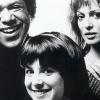The Reader
Don't Give Up

I have friends who have given up on fiction entirely. They only read books that tell them how to do something, or explain the current political landscape through the eyes of conservative talk-show hosts or liberal comedians, or illuminate human history through the evolution of the zipper or the cat-head biscuit or some such. If they do read fiction, it’s a very specific kind of fiction, usually involving sassy female detectives screwing vampires or the foiling of Arab terrorists by rock-jawed ex-Navy SEALs who answer directly to the president. In other words, there comes a point in many people’s lives when fiction is relegated to mental junk food or dispensed with entirely.
This scenario is completely understandable. Few enough of us are what one would call “readers” anyway—after all, we’re taught from our earliest days in school that reading is a task with a deadline and a judgment on our performance, not something one does for pleasure—and the impetus to read diminishes as we get older and weighed down with responsibilities. Our minds get enough of a workout in the daily struggle to survive and thrive, and by the time we get to the point where our backs start to ache for no reason and our hair follicles start taking early retirement and moving down south, most of us just don’t have the energy to navigate metaphors and the complex personalities of people who don’t even exist. We regard reading as a hobby rather than a necessity, and we put it in the same place as our baseball cards or that sweater we’ve been knitting for months.
This is a shame, because the best stories are written by grownups for grownups, and the best stories written by grownups for grownups are short stories. For all the marquee value of the novel, its form allows and often requires bloat (if you’re Henry James) and padding (if you’re James Patterson). Short fiction, on the other hand, is fiction boiled down to its essence—lean, economical and as direct and true as an arrow to the target—and is therefore much harder to master. Writers who gauge the worth of a story by its word count are the same as poets who think haiku is easy, and both miss the point.
The Georgia Review gets it. Our hometown literary magazine, operating under the auspices of the university, has been quietly putting out some of the finest short fiction in the Republic for over six decades now, including many Pushcart Prize winners (the equivalent of the Pulitzer for small-press literary fiction). Whereas every college puts out some kind of literary magazine, The Georgia Review not only bellies up to the same bar as Ploughshares and The Kenyon Review but elbows aside The New Yorker and The Atlantic Monthly to get there. When I say The Georgia Review is one of the top magazines for fiction in the country, this isn’t hometown jingoism talking. Like they say, it ain’t bragging if you can do it, and The Georgia Review does.
This year marks The Georgia Review’s 65th anniversary, and they’ve celebrated by putting out a new collection called Stories Wanting Only to Be Heard: Selected Fiction from Six Decades of The Georgia Review (University of Georgia Press, 2012). Edited by Stephen Corey, with Douglas Carlson, David Ingle and Mindy Wilson, this is like Christmas in March, some of the best short fiction written anywhere since 1947. The list of authors featured here—William Faulkner, Joyce Carol Oates, T.C. Boyle, Donald Hall, John Edgar Wideman, Mary Hood, Ernest J. Gaines, Fred Chappell, Harry freakin’ Crews—make this a veritable textbook for aspiring writers and a joy for readers.
There’s a hefty dose of “Southern” fiction here, as is to be expected. Though, personally, I’ve never cared for that particular delineation as a defined subgenre or as a selling point, the South as a setting and a calling-forth of a distinctive voice is well represented here, but the range of places and voices in this anthology is wide. What the stories have in common, however, is the keen insight into human frailty and the large and small tragedies that shape our lives. No Navy SEALs here. The best stories are mirrors, and these are polished to dazzling clarity.
There is much to be proud of in Stories Wanting Only to Be Heard, and Corey et al. have done a spectacular job of picking through the treasure trove of material from the vast archives of The Georgia Review. It’s an enviable job, and one done very well. For those who have given up on fiction, this anthology will bring you back into the fold.












comments